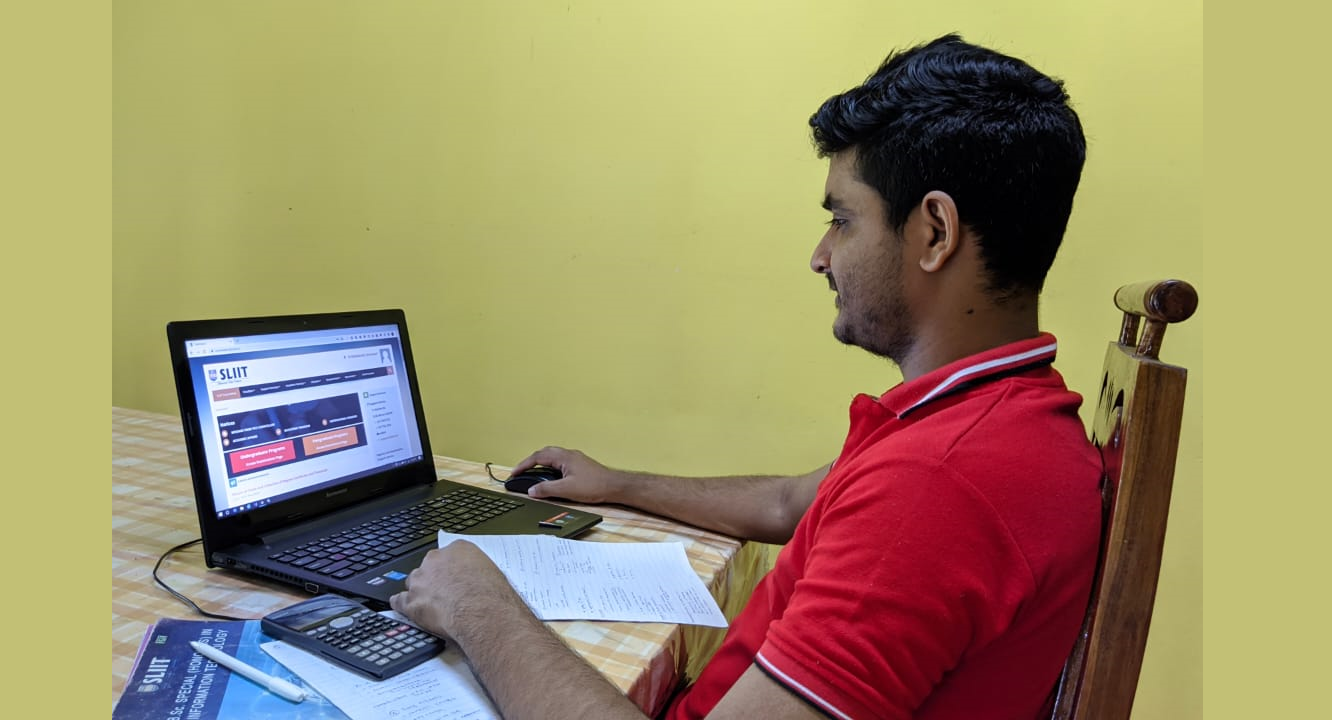By Druvinka Samuel
Uncertainty has been an overriding theme of this year, disrupting major plans be it personal, professional, educational or otherwise. And with the year about to come to a close the COVID-19 pandemic continues to wreak havoc, with its lingering precariousness offering no sign of disappearing in the short term.
Life after A/Ls
Speaking about uncertainty, one demographic it has seeped into is our student population. For anyone who has already sat a major exam in their life, the time frame between sitting the last exam and results day is one that is usually characterized with a nervous back and forth rocking. However, the extraordinary circumstances in which A/L students had to sit their exams this year, is not the biggest obstacle they have faced. The announcement of results being postponed indefinitely coupled with the raging pandemic, have forced students to rethink their plans of higher education. The travel and visa restrictions imposed by foreign countries are another damper, clarifying that physically going abroad for a degree might well be tremendously tedious and even impossible at this stage, even if one leaves the cost factor apart. If a student has opted to go to a local State university, there will undoubtedly be a great deal of idling between results day and actually starting at the given local university, which would break the momentum of productivity and keenness.
Plan B
However, unlike most other situations this year, for students waiting to begin their degree, there is a fully viable Plan B. That is because many academic institutions in Sri Lanka are reshaping the norms of education, creating flexible solutions for the long run. There are many such institutions, but students are strongly advised to go for one that is fully backed by the State, with a proven track record. One such institute is the Sri Lanka Institute of Information Technology (SLIIT) which is not only providing flexible solutions but is also allowing students the opportunity of gaining a head start. While international universities expect students to apply based on predicted or already available results, SLIIT has taken this a step further. The Institute has remodelled the general framework of their premise in order to allow students the leeway to begin their degrees based on predicted results. Once results are released, if the student meets the academic entry requirements, he or she can simply continue with their degree and if they do not meet the criteria, SLIIT will refund any fees that were paid towards the degree. They would also allow these students the option of starting a foundation course in lieu. Moreover, students who study at such local institutes do not have to sit for other examinations such as TOEFL or SAT.
Long term effects
So what does this really mean in the long run? The delay in higher education caused by the effects of the pandemic this year will create a domino effect in the long run worldwide. Delays in students commencing their higher education would mean that there would be a reduction of manpower in various job markets. With the technological advancement happening in the world right now, there is a need for youth participation to assist in the advancement and to future proof various industries against the disruption that this technological revolution would inevitably cause. Flexible opportunities and options like those offered by SLIIT are needed changes in higher education that would go a long way in preventing long-term effects for students, employers as well as industries.
Moreover, institutions such as SLIIT have duly recognised affiliated programmes with major international universities. This means students would have the option of starting an international degree locally, while waiting for a definite solution to the pandemic (such as vaccination or cure) and the restrictions caused by it. Since they would be able to transfer to a foreign university of their choice if they so desire once conditions become less risky, the offers by these higher education institutions might be worth considering.
Undisrupted momentum of productivity
Some may argue that students who begin a degree based on predicted results, end up getting results that are below what is expected, and although there is no loss of money, time is wasted because they may be required to take on an additional foundation course. This, however, is not true, as the additional knowledge the student has gained when starting the foundation course will no doubt help in fast tracking the process. No matter what result the student has to undergo, he or she would not have disrupted the momentum of productivity by idling at home waiting for the results to arrive. Studying something is worthwhile than doing nothing at home, as per conventional wisdom. Moreover, these study courses effortlessly blend online and physical classroom work, so the students can continue to study and interact with their lecturers even in a lockdown situation, which has been a common feature of COVID-19 situation.
While this year has rattled the sturdiest of industries, including education, the Sri Lankan higher education system having revolutionary structures like SLIIT is a great boon to students in the country. Their progressive thinking encourages and spurs students to not get left behind even in the midst of a world-impacting pandemic that may yet last for a few more years despite the advent of vaccination.
(Druvinka Samuel is a keen observer of geopolitics, trade and economics in the South Asian region and pursuing her higher studies in arts and social sciences)
Source: Daily News 24.12.2020



